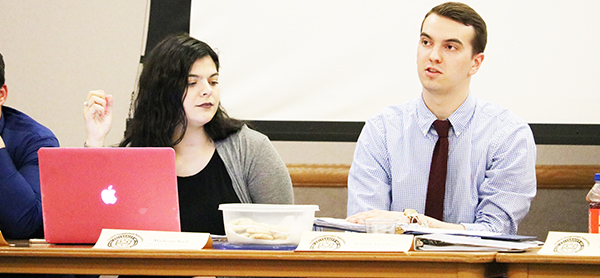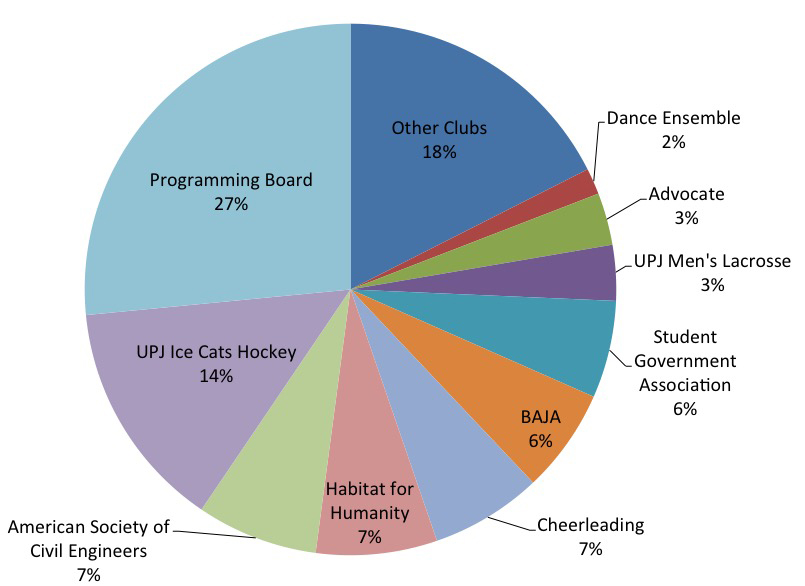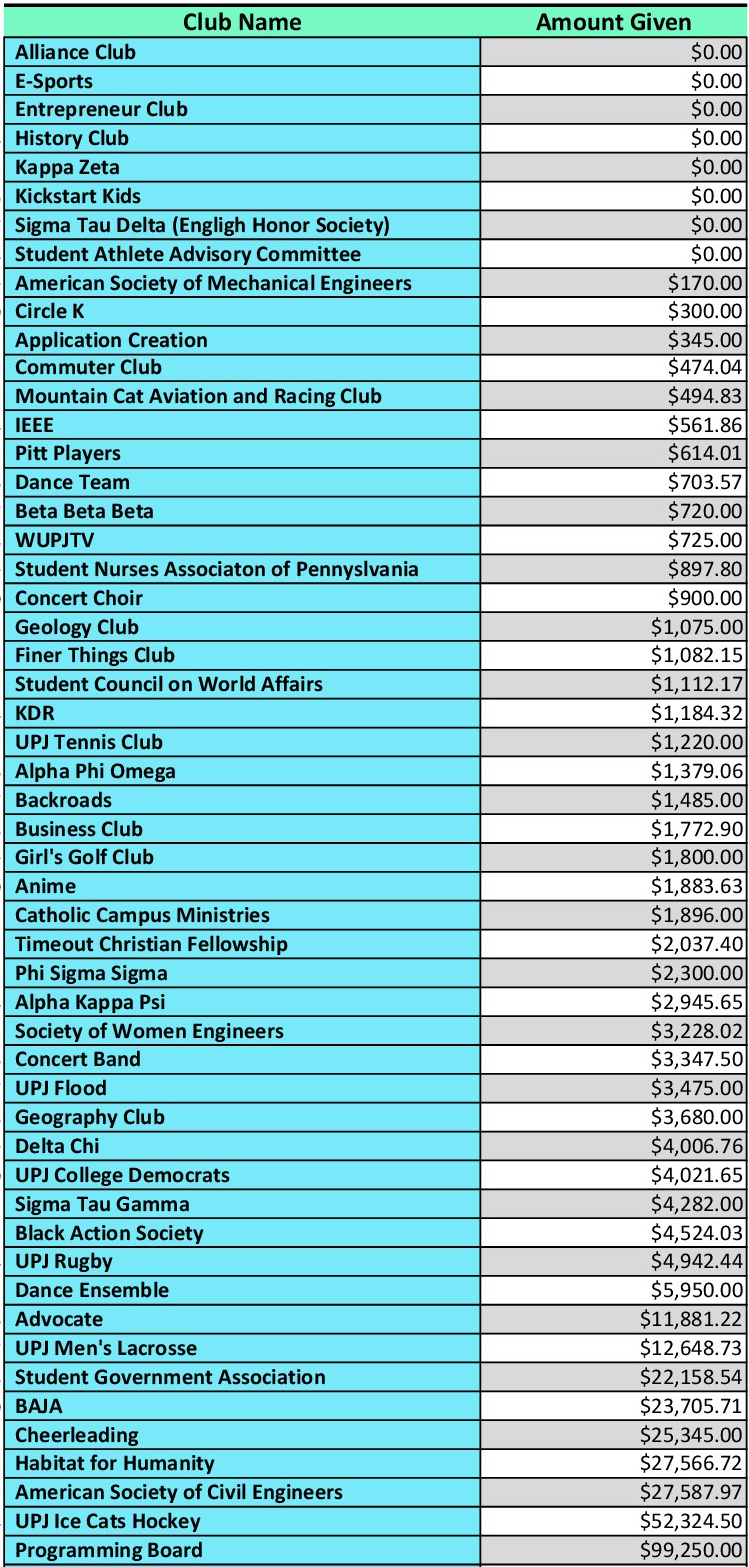Almost half goes to only 3 groups

At a March 28 student government meeting, Treasurer Joe Evanko and President Pro Tempore Madison Nick presented the 2017-2018 budget for clubs and organizations. Student government members approved the budget.
April 5, 2017
Student government members approved a 2017-2018 academic year budget for clubs and organizations at a March 28 meeting.
Funds were allocated to 47 clubs. Eight organizations were denied funding, including Kappa Zeta sorority, History Club and Kickstart Kids’ Hearts.
The three organizations that received the most money were Programing Board, $99,250; Ice Hockey, $52,324 and American Society of Civil Engineers, $27,588.
Pitt-Johnstown College Democrats requested $129,219: $75,000 for a Bill Nye appearance and $50,000 for commentator Van Jones.
Treasurer Joe Evanko said that was not feasible.
“(Allocations committee members) denied (Nye and Jones) because that just isn’t feasible with the amount of money we have to allocate to all clubs,” Evanko said.
College Democrats members received $4,021 for next year.
Catholic Campus Ministry requested $18,000 for next year. The organization received $1,896.
Ministry members did not provide proof in time for a funds request.
When Evanko brought amendments to the budgets, one he brought up was the amendment to the ministry’s budget.
For a budget amendment to be approved, two-thirds of student government members must vote in favor of the amendment.
Student government senators passed the members’ amendment, and the club was allocated $1,896.
Geology Club members requested $11,150. They received $1,075.
“Geology Club’s budget was late, and they didn’t give accurate proof,” Evanko said.
The student activity fee — a $90 charge to each student every semester, creates the money to allocate to organizations.
According to Evanko, if a student drops out before a certain point in the semester, all or half of the $90 is refunded.
“We predicted low just to be safe,” Evanko said.
At a March 14 student government meeting, co-chairwoman Madison Nick said allocations committee members predicted there to be 2,700 students for next fall semester and 2,400 students for next spring semester.
According to Nick, the student government constitution states that a certain percentage of the predicted student activity fee must go to the Programming Board.
She said giving the certain percentage straight to Programming Board members allows them to plan programs based on what is happening, planning events a year in advance.
“With giving (Programing Board members) a certain percentage of the student activity fee, (board) do not have to plan a whole year of events in advance,” Nick said.
Nick also said the Programming Board is the only club the student government constitution requires a certain part of the budget to go to.
“Programing Board serves the whole campus,” she said.
Some items the allocations committee didn’t fund included clothing, retreats and coaches’ pay.
Evanko said cutting coaches’ pay was a tough decision.
Although club coaches are there for a reason, Evanko said it wasn’t fair to be paying coaches with the students’ money.
The emergency allocation fund allows club members to request funds for something they did not originally included in funding requests.
To keep funds in the emergency allocation pool, 5 percent of the student activity fee needs to be in emergency-allocation funds.
When allocations committee members originally reviewed all of the budgets, the emergency-allocation funds were not big enough.
“We were pretty nice first time around,” Evanko said.
However, committee members then went back through each budget and cut an additional 10 percent to the last line item in each club’s budget, according to Evanko.
New clubs whose members proposed a budget less than $1,000 and returning club members who proposed a budget less than $500 did not receive the 10 percent cut from their last funds request.
Evanko said this year’s budgeting season went well.
“Overall, budgeting went a lot better. We had no mistakes, besides the issue with the constitution.”
Nick agreed.
“Budgeting has changed a lot since my freshmen year. It’s gotten a lot better, and club (members) are starting to get a hang of (the budgeting process),” Nick said.


